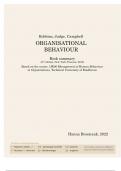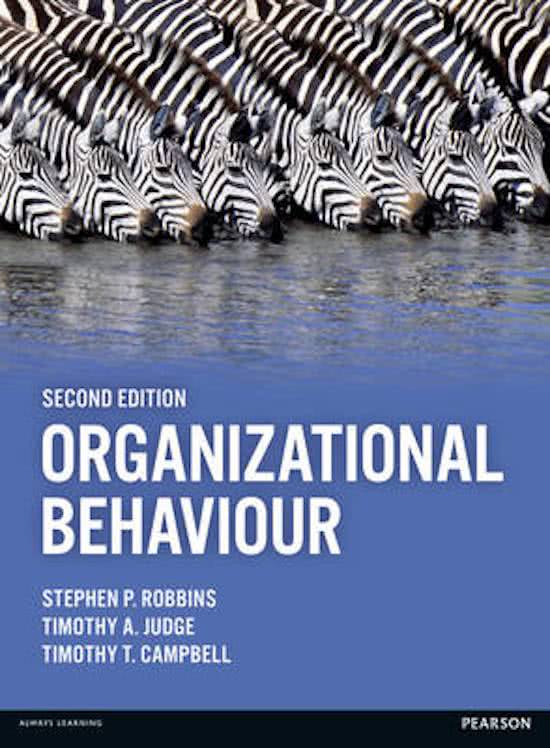Samenvatting
Organisational Behaviour - book summary
A very extensive book summary for "Organisational Behaviour" (2nd ed, 2017) by Robbins, Judge, and Campbell - can be read instead of the book! Added extra materials from videos and micro-lectures assigned for the course lJK00 in TU Eindhoven (content is separated in the notes). Contains the defini...
[Meer zien]





